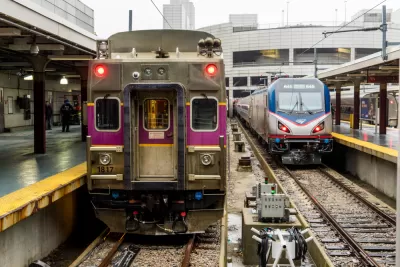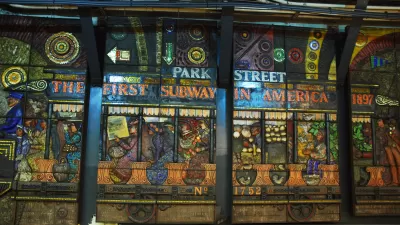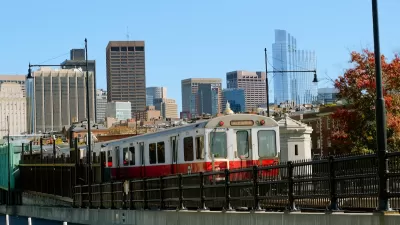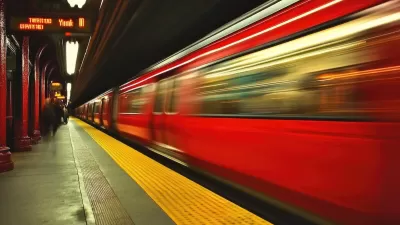After a similar bill was vetoed by Governor Charlie Baker in 2020, the Massachusetts senate has reintroduced an amendment that would mandate discounted transit fares.

“After another push from advocates, legislation which would require the MBTA to establish free or discounted fares for low-income transit riders is still in the mix with two weeks to go in the 2022 legislative session,” writes Sam Mintz for Streetsblog Massachusetts, but the legislation faces a few obstacles.
“The legislation has passed the legislature previously, only to be line-item vetoed by Gov. Charlie Baker. The bill was passed too late in the 2020 session to override the veto, State House News reported at the time. ” Now, “it would have to be included in the final version of the bill, which will be hastily put together by the House and Senate before the July 31 end of the legislative session.”
Pete Wilson, a senior advisor at Transportation for Massachusetts, said the program could be a crucial lifeline for low-income residents immediately. “It would be great if the T could actually start implementing this program to help people who really do need relief from things like high gas prices and record inflation,” Wilson said.
According to the article, “The Senate also passed an amendment which would define and legalize pedal-assist e-bikes, a top priority of bike advocates in Massachusetts, who say it would match the state definition with other states and the federal government and open up the door for wider adoption.” The legislation did not include language supporting rebates for-ebike purchasers, which supporters say would also boost widespread adoption.
FULL STORY: Mass. Senate Revives Low-Income Fare Legislation

Study: Maui’s Plan to Convert Vacation Rentals to Long-Term Housing Could Cause Nearly $1 Billion Economic Loss
The plan would reduce visitor accommodation by 25,% resulting in 1,900 jobs lost.

North Texas Transit Leaders Tout Benefits of TOD for Growing Region
At a summit focused on transit-oriented development, policymakers discussed how North Texas’ expanded light rail system can serve as a tool for economic growth.

Why Should We Subsidize Public Transportation?
Many public transit agencies face financial stress due to rising costs, declining fare revenue, and declining subsidies. Transit advocates must provide a strong business case for increasing public transit funding.

How to Make US Trains Faster
Changes to boarding platforms and a switch to electric trains could improve U.S. passenger rail service without the added cost of high-speed rail.

Columbia’s Revitalized ‘Loop’ Is a Hub for Local Entrepreneurs
A focus on small businesses is helping a commercial corridor in Columbia, Missouri thrive.

Invasive Insect Threatens Minnesota’s Ash Forests
The Emerald Ash Borer is a rapidly spreading invasive pest threatening Minnesota’s ash trees, and homeowners are encouraged to plant diverse replacement species, avoid moving ash firewood, and monitor for signs of infestation.
Urban Design for Planners 1: Software Tools
This six-course series explores essential urban design concepts using open source software and equips planners with the tools they need to participate fully in the urban design process.
Planning for Universal Design
Learn the tools for implementing Universal Design in planning regulations.
Ascent Environmental
Borough of Carlisle
Institute for Housing and Urban Development Studies (IHS)
City of Grandview
Harvard GSD Executive Education
Toledo-Lucas County Plan Commissions
Salt Lake City
NYU Wagner Graduate School of Public Service





























